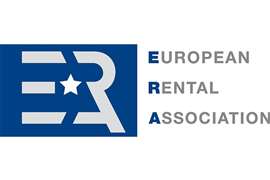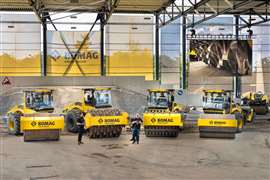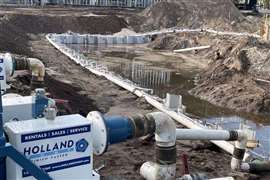Read this article in French German Italian Portuguese Spanish
ERA projects: Energy transition in rental
17 June 2025

The ERA project Energy Transition in Rental aims to facilitate the shift from fossil fuels to cleaner, renewable energy sources within the rental industry.
The study involved a comprehensive literature review, interviews with key industry stakeholders, and surveys conducted with rental companies and OEMs.
This report identifies and analyses low-carbon solutions per equipment type and use case.
Key energy transition drivers, barriers, and shifts in customer value proposition are presented. The following alternatives to fossil fuels listed are evaluated: battery electric; hydrotreated vegetable oil (HVO) and biodiesel; hydrogen (fuel cells and internal combustion engines), with electric batteries and HVO being identified as having the highest potential to reduce fossil fuel consumption in the equipment sector.
The report describes specifics of various use cases and identifies key energy transition challenges.
It also provides recommendations for action on industry level for harmonization of charging infrastructure as well as for energy related consideration of the total cost of ownership.
The Importance and Challenges of Energy Transition
The process if the energy transition in the rental and by extension the construction industry has been ongoing gradually for several years.
The process is fuelled by the need for decarbonisation of the industry, increasing pressure from regulations and from customers on sustainability and the overall shift to modern equipment that is required to have many digital capabilities.
However, the rental industry faces significant structural challenges as it moves towards low and zero emissions equipment. These challenges include limited availability of alternative fuels and fuelling and charging infrastructure, fragmented landscape of charging solutions, limited availability and a price of low emissions equipment, cultural and technical reticence of rental customers to embrace low emission equipment, as well as the complex considerations of total cost of ownership of equipment.
To address these issues, ERA contracted EY, the renowed consultancy, to engage all stakeholders—OEMs, rental companies, customers, users, and public authorities in a truly collaborative study.
Deliverables of the project
The Energy Transition Project is built around four essential objectives, offering a comprehensive roadmap:
On standardisation, the study summarise current trends in batteries and infrastructure to articulate the rental industry standards needs and identity training needs of rental companies in this area. This part also deliver recommendations to equipment manufacturers and to public authorities on standardisation actions.
Guidance on energies summarizes the range of alternative energy options and identify the most appropriate type of energy in a piece of equipment and the barriers to the alternative types of energy adoption. A separate note on the taxation of fuels, incentives and subsidies developed in this part of the project.
A report on customer requirements and customer value proposition details the challenges and opportunities of the energy transition from the customers’ point of view. It give recommendations to improve the accessibility and attractiveness of low carbon solutions for the customers. It also identify new business opportunities for rental companies related to electrification of equipment and alternative energies.
Revision of the rental total cost of ownership model is updated the existing TCO model with energy related considerations, based on the conclusions of the first three phases.
Full Report, Executive Summary and Synthesis: https://erarental.org/publications/energy-transition-in-rental-report/
STAY CONNECTED



Receive the information you need when you need it through our world-leading magazines, newsletters and daily briefings.
CONNECT WITH THE TEAM











